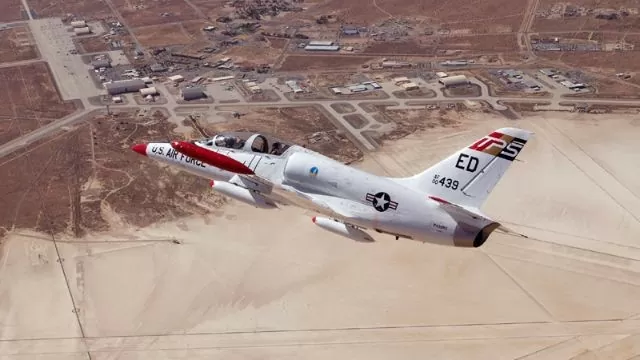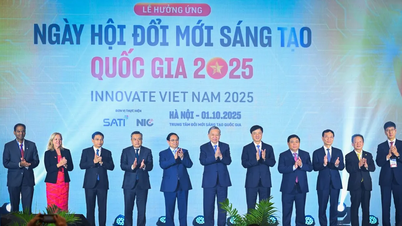Lockheed Martin Skunk Works has just completed a demonstration test of an air combat technology in which AI manages and coordinates missions.
On November 23, Bulgarianmilitary quoted information from Lockheed Martin Skunk Works saying that this American corporation has just coordinated with the corporation's Demonstration and Prototyping Organization and the Operator Performance Laboratory (OPL) of the University of Iowa (USA), completing an ambitious air combat technology demonstration, focusing on artificial intelligence (AI).
This program represents a breakthrough in the interaction between manned and unmanned aircraft.
 |
| L-39 Albatros aircraft - Photo source: USAF |
During the test, the pilot of an L-39 Albatros aircraft commanded and coordinated with two L-29 Delfin drones to neutralize simulated targets using a virtual weapon system. Meanwhile, AI played a central role in real-time mission management and coordination. The results marked a major step forward in integrating AI into military aviation, where AI not only manages control operations but also adapts strategies to the constantly changing battlefield.
“These achievements have the potential to reshape the way air combat operations are conducted, optimize command and control, and improve mission effectiveness in real-world combat conditions,” said John Clark, vice president and general manager of Lockheed Martin Skunk Works.
The demonstration will not only focus on air combat, but will also extend to air-to-ground operations and geolocation. Lockheed Martin and OPL are developing new training methods that integrate AI into real-world environments, with the goal of shortening decision-making times, minimizing human error, and improving agility in complex combat situations.
Lockheed Martin and the University of Iowa have collaborated to create cutting-edge solutions to optimize command capabilities, using AI technology and advanced autonomous systems. Tests have shown that AI not only supports but also enhances the coordination between human operators and drones, laying the foundation for a new era in aerial combat.
These advances have strategic implications for the future of military aviation, as combined formations of manned and unmanned aircraft are increasingly deployed to effectively counter air and ground threats. The integration of AI promises to significantly change the way missions are conducted, improving adaptability to modern combat scenarios and ensuring optimal safety for pilots.
In an increasingly complex military conflict, these technologies are not only a technological advancement but also a strategic investment for the future. Lockheed Martin aims to maintain its leadership in the military aviation industry, with a commitment to developing cutting-edge innovations to meet the challenges of modern warfare.
From optimizing flight paths to adjusting tactics in real time, AI is reshaping how air forces conduct their missions, opening a new chapter in the history of air combat. Moving forward, Lockheed Martin will continue to innovate and integrate AI technologies, creating more synchronized, powerful, and reliable systems that contribute to the ability to effectively respond to increasingly sophisticated threats on the global battlefield.
Source: https://congthuong.vn/artificial-intelligence-who-duoc-cho-thu-nghiem-tac-chien-khong-quan-360454.html


![[Photo] Keep your warehouse safe in all situations](https://vphoto.vietnam.vn/thumb/1200x675/vietnam/resource/IMAGE/2025/10/1/3eb4eceafe68497989865e7faa4e4d0e)
![[Photo] Hanoi morning of October 1: Prolonged flooding, people wade to work](https://vphoto.vietnam.vn/thumb/1200x675/vietnam/resource/IMAGE/2025/10/1/189be28938e3493fa26b2938efa2059e)



![[Photo] President of the Cuban National Assembly visits President Ho Chi Minh's Mausoleum](https://vphoto.vietnam.vn/thumb/1200x675/vietnam/resource/IMAGE/2025/10/1/39f1142310fc4dae9e3de4fcc9ac2ed0)




























































































Comment (0)